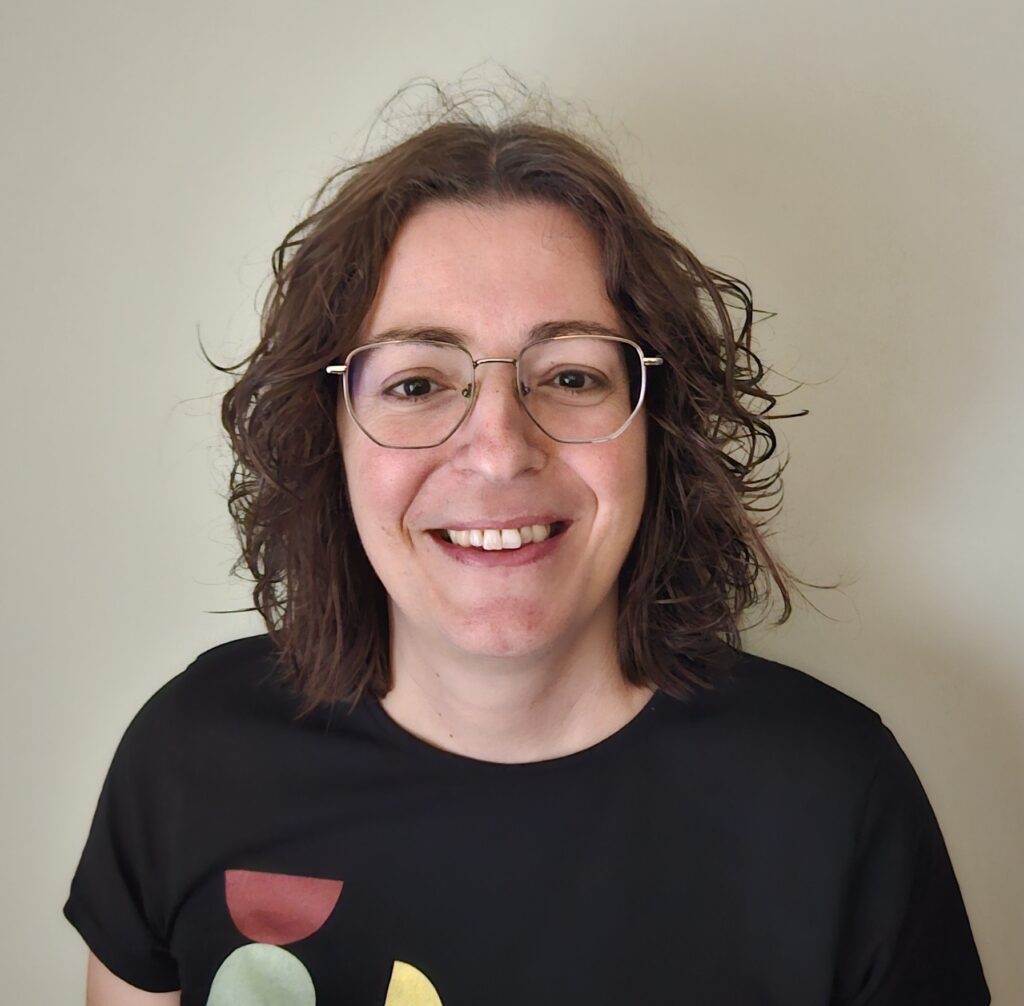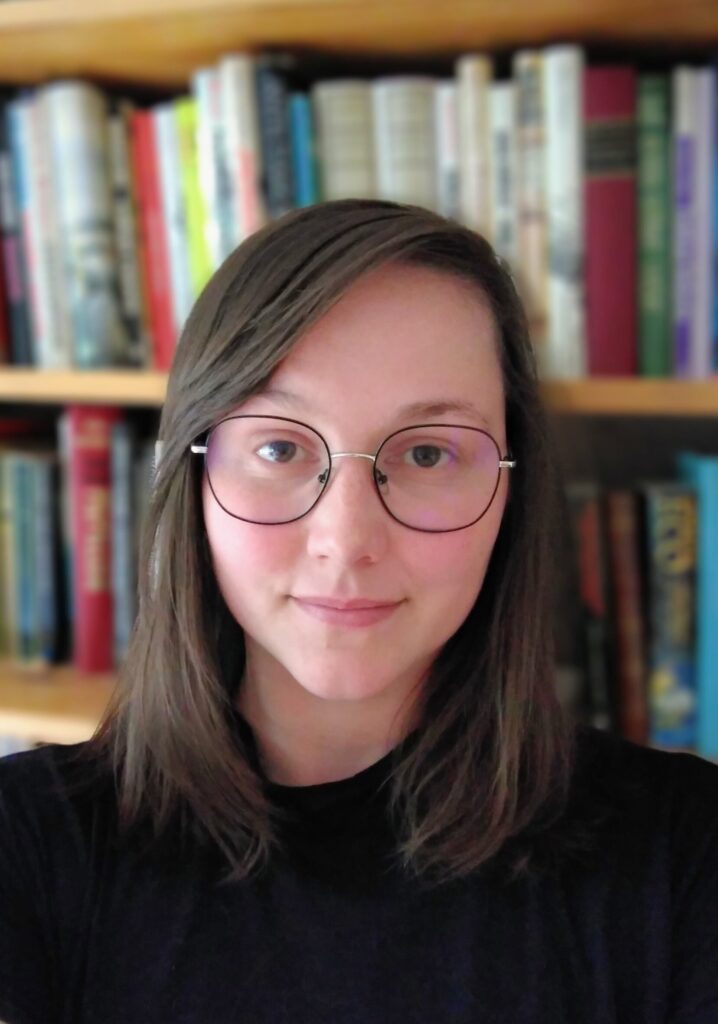You might have wondered how many people are behind the scenes at DOAJ and what they do. This blog post series will offer our community an opportunity to meet several of our team members and learn more about their roles and responsibilities. In this blog post, we will meet Paula Marjamäki, Managing Editor and Helpdesk team, and Popi Florou, Database Assistant and Helpdesk team.

Hello Paula and Popi! Tell us a little about your role and your background!
Popi: I started at the DOAJ as a Database Assistant almost four years ago. My main tasks currently at DOAJ are the triage of the new applications and helpdesk, which I share with Paula. I’m also responsible for the Greek applications, but that’s not too often. For the last 20 plus years I’ve been working as a librarian for the Greek consortium.

Paula: I’m a biologist by training. I finished my PhD in 2019 and found DOAJ by chance. I saw a job ad from DOAJ where they were looking for someone to do triage. At the time I was wondering what was next, so I was looking for something to do while I figured that out. I applied and got the job, and four years later I am still here! I did a few months as the Database Assistant and then moved on to become a Managing Editor, which is my primary role still. I’m responsible for applications from the Nordic region as well as South East Asia. I also manage a few of the big publisher accounts. On top of that I am also in the Quality Team, doing investigations into potentially questionable publishers. And lastly, I also manage the helpdesk email with Popi!
So, your role working at DOAJ’s helpdesk is not a full time role, but a small part of what you do at DOAJ?
Paula: Yes, that’s right. We’ve got the responsibility in addition to our other roles to ensure someone from DOAJ is answering the emails that we get through from our community.
What is the difference between triage and helpdesk?
Popi: The main difference is human interaction! At helpdesk we respond to queries coming in from people who want help with something.Triage is about processing and reviewing applications coming in to DOAJ, a more impersonal task.
What kind of emails do you get at helpdesk?
Paula: A wide range of stuff. I think the most common queries relate to the application process, questions about criteria, how to apply, requests on the status of applications and problems they might experience related to the application form. We get a lot of questions from indexed journals too about managing their journals in DOAJ, as well as emails from the broader community about incorrect or missing information on the journal records. We also get the occasional request to publish with us, which we of course don’t do as an indexing site! We are essentially the primary point of contact between DOAJ and the community.
How many emails appear in the helpdesk email each week?
Paula: It’s really hard to estimate, because it varies a lot. Maybe 20-30 emails a day or 100-150 a week. It does vary a lot, depending on the number of applications coming in or if there happens to be anything in our system that’s creating errors in metadata upload, for example.
How do you manage the inbox when there’s two of you responding to emails?
Paula: We split the week so each of us has time for the other work we do. I cover the start of the week and Popi covers the end of the week, but we both also check on ongoing conversations throughout the week so that people don’t wait too long for answers. If one of us opens an email then we’re the person who deals with that email from start to finish.
There’s a few tasks that we’ve separated. Popi has responsibility for the emails coming from discovery services and aggregators, which are usually related to data and metadata. I respond to the feedback that comes through our website from the feedback buttons on each of the journal pages, where our community can rate journals in terms of their information and then I check these and respond to them if they’ve left an email address.
What’s one thing you wish people knew before emailing helpdesk?
Popi: Well, one ‘trick’ that our system does is that if someone emails again the next day after not receiving a response immediately, that email just goes to the end of our queue. This just means that there’s even more delay in us getting to that email to respond, as we process the incoming emails in chronological order. So, if you email helpdesk, please don’t email again to try to prioritise your email as it has the opposite effect!
Also, sometimes people don’t give us enough information. We get an email with one sentence, and the person sending the email assumes we will understand everything from this sentence. It’s important that people give us the right information – if you’re emailing on behalf of a journal, tell us what journal it is!
Paula: Yes, more is more! We can help you faster if we have all the information we need.
If people have questions about publishing in a specific journal, they need to email the journal. We don’t have anything to do with the publishing side of things.
What does an average week look like for you?
Paula: It varies! Usually I spend an hour or two in the morning on helpdesk, before I do anything else. The rest of my time is split almost equally between tasks related to my Managing Editor role, which is regular reviewing of applications, and the Quality team work, which is more in depth reviews – these roles take up the majority of my time. Then I have various meetings dotted in between these tasks.
Popi: I work part time at DOAJ, so I also use weekends to manage the tasks I wasn’t able to do during the week. Sometimes when there’s a lot of triage workload I spend Saturday on helpdesk instead of Friday, which is my helpdesk scheduled day. I try to balance triage and helpdesk tasks, so weekends are very useful for me!
What do you find challenging about your role?
Popi: For me, the most challenging thing is to find the balance between helpdesk and triage. Sometimes it is difficult to decide which tasks to do when the workload is so big. Which task do I give my attention to first? Usually it’s helpdesk because this task involves replying to people who are waiting for us to get back to them. Another challenging thing is to psychologically accept the constantly increasing number of pending applications for triage – even if I work for several hours the number of pending applications is still the same because we just keep getting them! It can feel kind of disappointing, because you work for hours but cannot really see any results as the number of applications stays the same.
Paula: I remember that when I was covering you earlier this month. I thought I had done loads and just had a few applications left. Then I refreshed the page and was like… “Oh!”
I think the workload and balancing it is challenging. Particularly with helpdesk, it’s just about keeping up with it enough so that people get a response in good time. We do enlist other team members to help clear some emails if there is a long queue.
What do you like most about your role?
Paula: With helpdesk, I like helping people and being able to solve problems. Most people are very appreciative of it, which is always nice to hear. In regards to reviewing applications I like the investigative work, as you can be a bit of a detective.
Popi: For me, it’s similar to Paula. For helpdesk, I like the process of replying and helping people solve their problems. With triage, I see it as the first step of the reviewing application process, so I like the feeling that I assist as much as I can the rest of the Editorial work.
What are your personal views on Open Access?
Popi: This is a complicated matter. I definitely agree with the Open Access movement, but I have second thoughts about the way this is being accomplished lately. I could say what my dream situation would be, but I don’t see it happening very soon. I know that universities are trying to do the best for their researchers, both in terms of giving them access to the content they need and providing an affordable way to publish Open Access. In a way this continues a problem that existed before the Open Access movement as the cost is not reduced, but transferred
Paula: I have a similar answer. I fundamentally think Open Access is the only way to go. I believe that knowledge is a common good, and it should be accessible to everyone. But there’s lots of issues. Open Access is the ideal, but like Popi said, there’s lots of challenges in terms of getting there. There’s a lot of good people working on good projects to make sure there’s equitable access and sustainable systems.
I think people have a tendency to try to want to find one system or solution, and that isn’t the answer for … well almost anything! I think the answer usually includes diversity.
